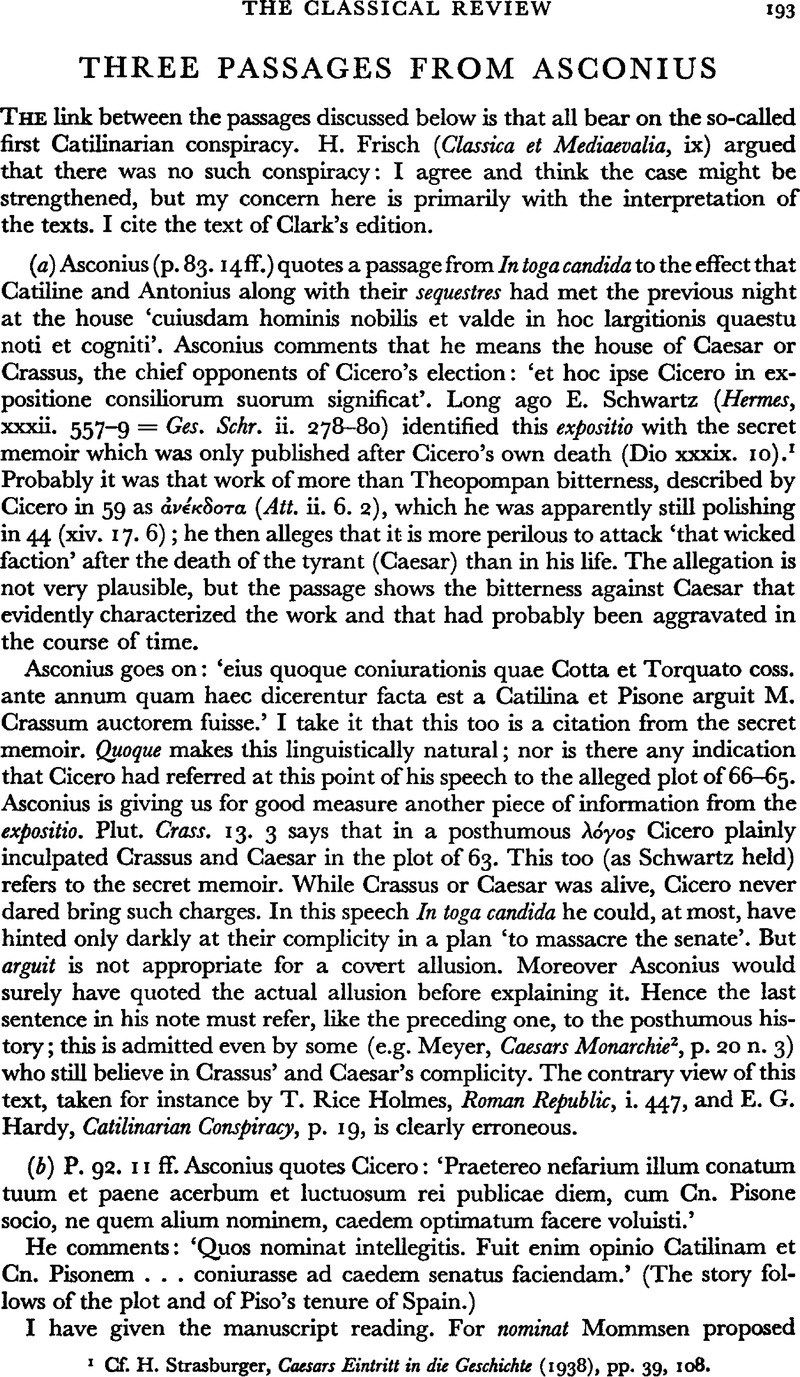No CrossRef data available.
Published online by Cambridge University Press: 13 February 2009

page 193 note 1 Cf. Strasburger, H., Caesars Eintritt in die Geschichte (1938), pp. 39, 108.Google Scholar
page 195 note 1 Suet. Iul. 9. 2 quotes from a lost letter of Cicero to Axius, of unknown date but probably after Caesar's death, the phrase (not necessarily a verbal quotation): ‘Caesarem in consulatu connrmasse regnum de quo aedilis (65 B.C.) cogitarat.’ The plan to ‘massacre the senate’ was thought out, if at all, in 66 and the phrase is too colourless to refer to it. Strasburger (op. cit., p. 108) suggested that he had in mind the lavish displays Caesar gave as aedile (Suet. 10. 2; cf. Cic. Phil. ii. 116, which again gives no hint of Caesar's part in a conspiracy); one might also think of the illegal restoration of Marius' images (Plut. Caes. 6, where the context rebuts the view that Catulus' charge that Caesar was undermining the state was based on his being concerned in a plot to overthrow it by open violence).